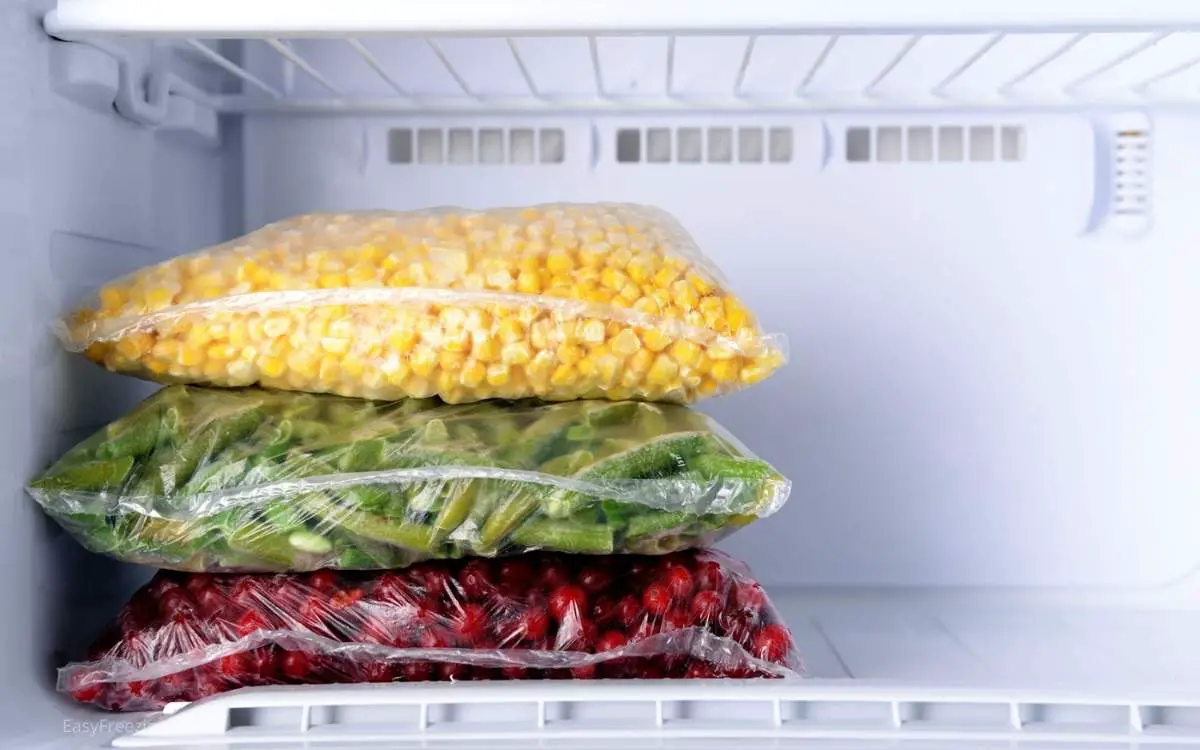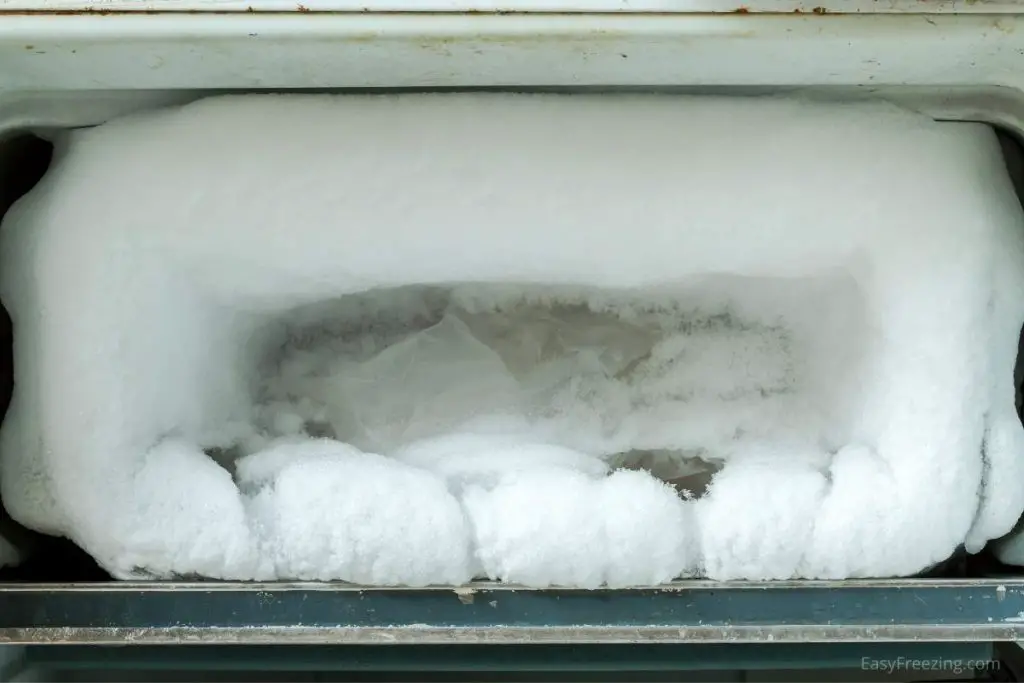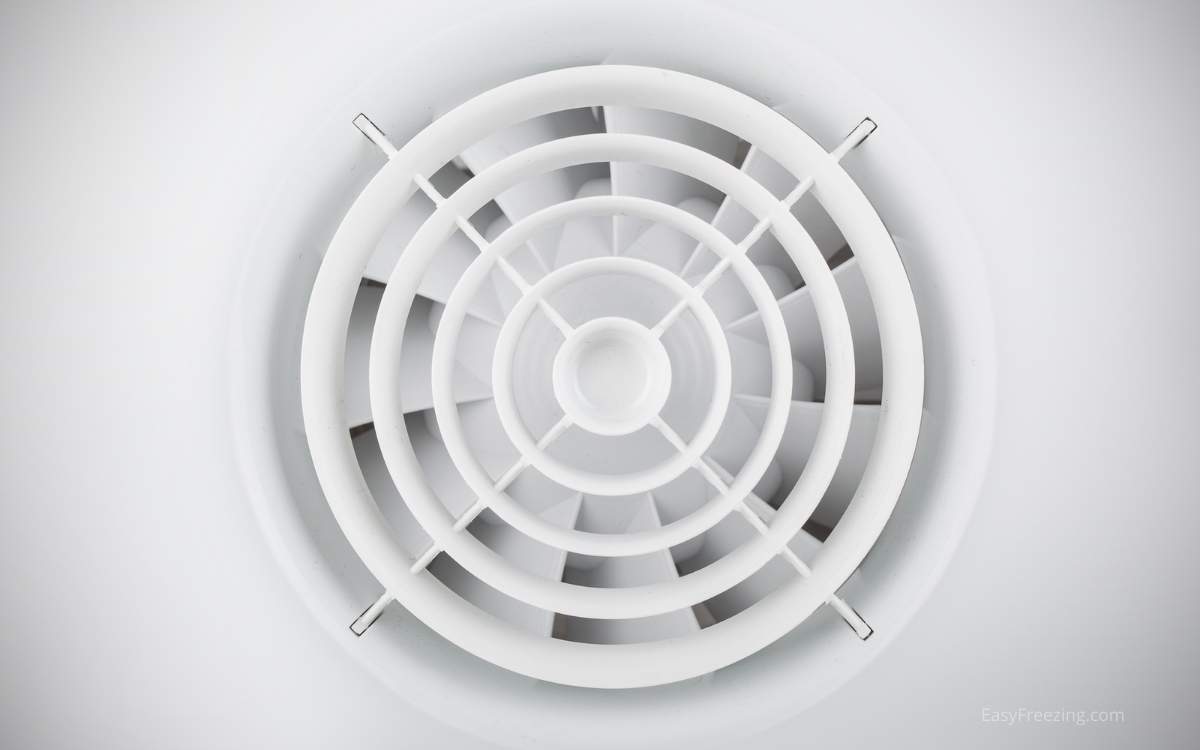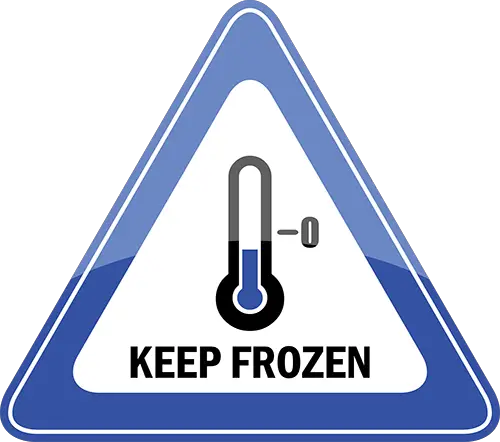What Is a Frost Free Freezer & How Does It Work? (Explained)
Over the last few years, more and more freezer manufacturers have started to introduce frost-free freezers. So, what are they? Are there any advantages to getting yourself a frost-free freezer?
A frost-free freezer is one that has an internal mechanism to avoid frost build-up. In theory, this means that you would never have to defrost the freezer. They work through a system of fans. As warm air enters the freezer, it is blown away before it has a chance to freeze and create frost.
Let’s go into a bit more depth on this. This way, you will start to work out whether a frost-free freezer may be the right choice for you.

What Is a Frost Free Freezer?
As you know, over time, freezers will start to gather ice inside of them. This ice builds up each time you open the freezer doors. It is essentially frozen air.
The job of a frost-free freezer is to prevent that ice from building up inside of the freezer. This means that you never have to worry about defrosting the freezer, nor do you have to worry about ice sticking to the important components of the appliance which, of course, can result in a rather costly repair or replacement.
With a good frost-free freezer, there will never be ice pooling inside of your freezer. The freezer will remain the same temperature, though.
Is Frost Free the Same As Automatic Defrost?
No. A frost-free freezer and an automatic defrost freezer are not the same.
In the next section, I will tell you a little bit about how frost-free freezers work but, for now, I’ll tell you how an automatic defrost freezer works. This way, you will be able to see the differences.
An automatic defrost freezer doesn’t stop frost from gathering in the freezer. It is allowed to accumulate. However, every so often, the freezer will heat up temporarily. It won’t be enough to defrost the food in your freezer, but it will be enough to melt the frost away. As the frost melts away, it will be drained into a water pan at the back of the freezer where it will just evaporate.
Unlike a frost-free freezer, you will likely need to manually defrost an automatic defrost freezer occasionally. Perhaps not as often as one without that function, but at least once every 12-18 months. This is because the auto-defrost cycle is not powerful enough to remove huge amounts of ice at once.
How Does a Frost Free Freezer Work?
As I mentioned previously, every time you open the door to your freezer, there is a chance that ice will start to accumulate. If you open your freezer now and see ice, then this is essentially frozen air that has been sucked into the freezer when you open the door.

While the most noticeable ice in the freezer will be inside the various freezer trays and on the door, some of that ice will have accumulated around the various internal components. This is the reason why we need to regularly defrost a freezer. If the ice freezes on the internal components, then it isn’t going to bode well for the freezer, or your food inside. At least, not without a regular defrost cycle.
This is where a frost-free freezer comes into play.
In a frost-free freezer, as I said, the freezer stops the frost from accumulating in the first place. Each time you open the door to your freezer, a series of fans will start to blow. These fans will blow the warm air you just let into the freezer right out again. The result? There is no warm air left to freeze, leaving the freezer perfectly frost-free.
Unlike an auto-defrost freezer, you will never have to manually defrost a frost-free freezer. Or, at least you shouldn’t if you have purchased a quality frost-free freezer.
What Are The Advantages Of a Frost Free Freezer?
Obviously, the major advantage of a frost-free freezer is the lower maintenance requirements. We know that defrosting doesn’t take a huge amount of time, but it is a hassle. Do bear in mind that if you are defrosting a freezer, your food will likely start to defrost (if you don’t have somewhere else to freeze it), and this can end up being rather costly.

A frost-free freezer is likely to save you a lot on the overall maintenance of the freezer too. Since ice won’t be sticking to the various components inside the freezer, you don’t have to worry about them wearing down or breaking. As you know, replacing a freezer is expensive, and having a frost-free freezer will mean that you are replacing that freezer a whole lot less often.
If that wasn’t enough, a frost-free freezer is able to maintain its temperature a little bit better. This is because you won’t have ice accumulating on the thermostat, a common issue if you do not defrost your freezer at least once per year.
Better temperature maintenance means that your frost-free freezer doesn’t have to work quite so hard which is easier on the components, and there is a lower risk of you losing your food because the freezer slightly defrosted it.
Are There Downsides To Purchasing a Frost Free Freezer?
Of course, a frost-free freezer does have a couple of disadvantages. Although, some of these disadvantages are debatable.
For starters, frost-free freezers are some of the most expensive freezers that you can purchase. Auto defrost freezers are considerably cheaper. However, you should also bear in mind that because frost-free freezers require less maintenance and last longer overall, the cost may end up being cheaper in the long run. Although, of course, this isn’t really going to help if you do not have the budget for one right now.
The running costs of a frost-free freezer also tend to be slightly higher. Not by much, though. It may cost a couple of extra dollars per month to run a frost-free freezer, mostly because it has to operate those fans that suck the air out of the freezer.
That being said, you may actually find that the energy costs of a frost-free freezer end up being lower overall. Defrosting a freezer takes a whopping amount of power because you are warming it up to the point where the ice inside melts. It then needs to be cooled down again. You will not have to put a frost-free freezer through this defrosting cycle, and thus it may end up cheaper in the long run.
Honestly, if you are able to afford a frost-free freezer, then the pros of owning a freezer with that particular feature will far outweigh the cons.
What Is a Frost Free Freezer – Final Word
A frost-free freezer does pretty much what it says on the tin. It is completely frost-free. You do not have to worry about defrosting this type of freezer because the way in which the freezer is designed will prevent the ice from accumulating.
This is all thanks to a few fans located inside of the freezer. Each time you open the door, the fans will blow any warm moist air out. If there is no warm air being cooled inside the freezer, then it can’t freeze and turn into frost. The only moisture in the freezer will come from the food itself.






